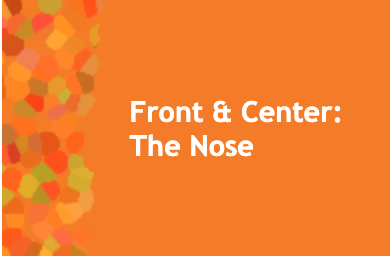The panel discussion in the other knowledge space advertised as dealing with sustainability, “Towards Greener Connectibility” included representatives from IPAC-RS and Clement Clarke International, as well as Vectura‘s Andrea Miliotis and Team Consulting‘s Brennan Miles and Charlie Dean. The H&T Presspart workshop, presented by Business Development Manager Thorsten Lehmann, “Putting the Patient First: Using Innovation and Patient Interfacing to Provide Safe, Cost-Efficient Drug Delivery through Improved Product and Processes” was also included in this space.
Dry powder formulations and devices
Much of the research presented at RDD 2021 centered around dry powder formulations, especially characterization and modeling of powders and considerations for spray drying biologics. In the Explore with Experts session in the Perfecting Inhaled Particles knowledge space, moderator Jeff Weers asked about widespread concerns regarding degradation of such molecules due to high temperatures during spray drying, saying that it had not been a problem in his experience. Kimberly Shepherd of Lonza replied that there is actually less heat exposure than people think, and she also noted during that inhaled delivery of macromolecules has an advantage over IV delivery in being able to tolerate a bit more degradation. Jenny Lam of the University of Hong Kong agreed that in her work with RNA, shear stress is a bigger issue than temperature.
In response to a question about whether thin film freezing (TFF) would be superior to spray drying of macromolecules for inhalation, both Lam and Shepherd agreed that while TFF’s lower temperatures might result in less degradation, the lower cost and scalability of spray drying makes it a better choice, with Shepherd asserting, “If you can’t scale it up, it’s not a product.”
Three of the RDD 2021 workshops centered on DPI delivery technology. One company, Iconovo, used its workshop on Development of a Generic Dry Powder Inhaler Platform for a Global Market to launch a new device, the ICOpre, a generic version of the Ellipta DPI. Kindeva Drug Delivery also used its workshop on “Breaking Down Barriers to Complex Formulation Challenges with Next Generation DPI and MDI Technology” to discuss its recently announced partnership with Cambridge Healthcare Innovations and to introduce the Aeolus device that the companies are developing together. In addition, Lonza Capsules & Health Ingredients presented a workshop on “How To Design The Optimal Capsule For Your DPI Project.”
Nasal drug delivery
The Front & Center: The Nose discussion panel featured Stephen Shrewsbury of Impel NeuroPharma; Warren Finlay of the University of Alberta; Gerallt Williams of Aptar Pharma; and Ross Walenga of the FDA. At the beginning of the discussion, moderator Julie Suman of Next Breath pointed the audience’s attention to a call for action included in Walenga’s presentation, “In Silico and Experimental Methods to Support Generic Nasal Drug Product (NDP) Development.” At the end of that presentation, Walenga addressed developers of generic nasal drug products, saying, “We ask that you consider a model-integrated approach to your development and perhaps even for demonstration of bioequivalence studies. If you have an idea of how to demonstrate bioequivalence that may be different from FDA recommendations, and you are considering submitting your generic to the FDA, you may actually meet with us ahead of time in the pre-ANDA process.” He also invited researchers working in the area to consider collaborating with the agency, noting that grants are available for such work.
The panel addressed a wide variety of issues, including the difficulties posed by inter- and intra subject variability in nasal delivery, whether patients prefer liquid or dry powder nasal products, and the safety of delivery to the upper nasal space.



